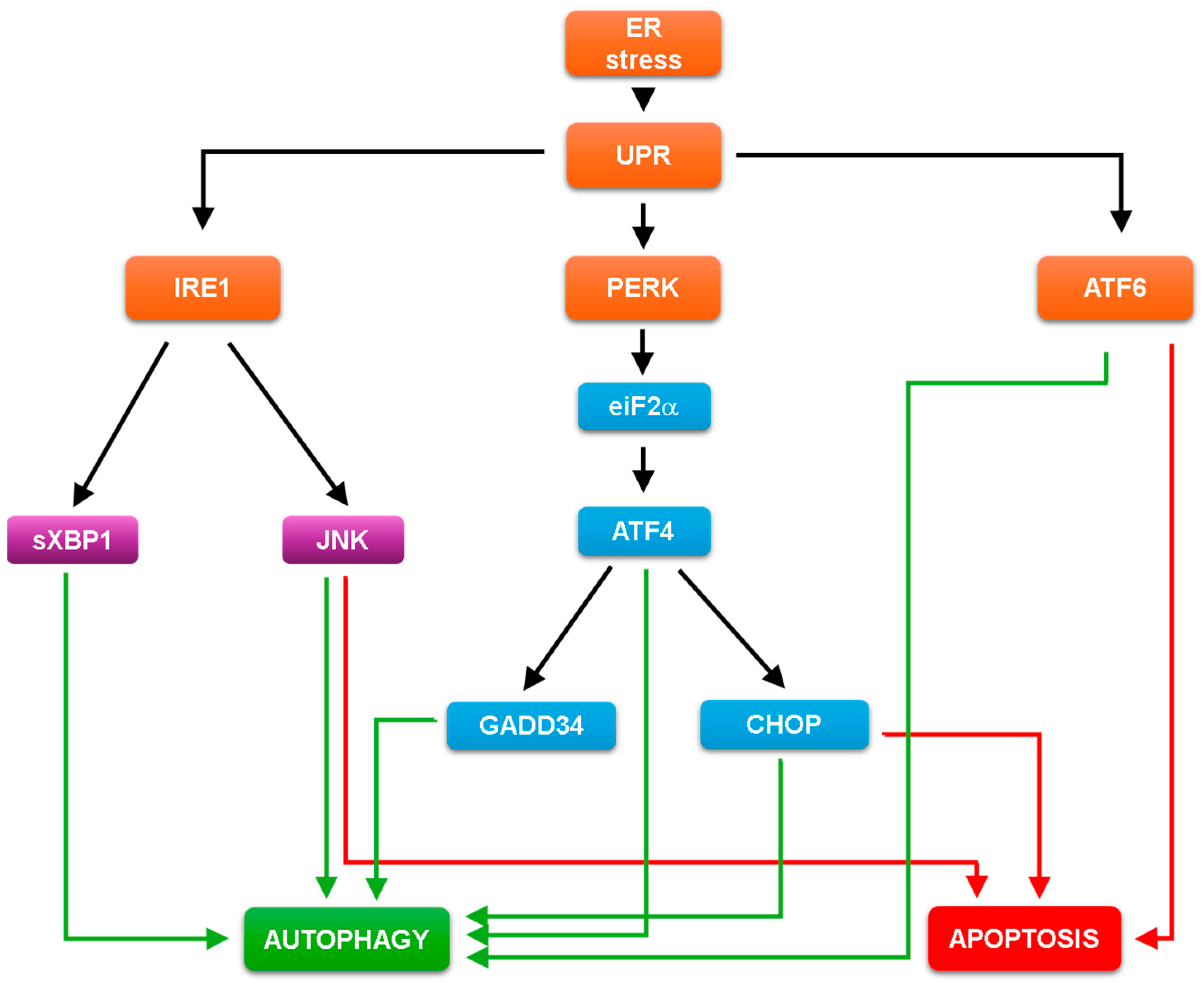ER stress-induced autophagy
 ER stress-induced autophagy is the core mechanism by which cells respond to protein homeostasis imbalances. When cells experience endoplasmic reticulum (ER) dysfunction due to factors such as hypoxia, nutrient deficiency, or accumulation of misfolded proteins, ER stress is triggered, which in turn activates the unfolded protein response (UPR) to restore homeostasis. Autophagy, as a conservative degradation mechanism, is dynamically regulated during this process, helping cells adapt to stress or initiate death programs by clearing damaged ER fragments and misfolded proteins.
ER stress-induced autophagy is the core mechanism by which cells respond to protein homeostasis imbalances. When cells experience endoplasmic reticulum (ER) dysfunction due to factors such as hypoxia, nutrient deficiency, or accumulation of misfolded proteins, ER stress is triggered, which in turn activates the unfolded protein response (UPR) to restore homeostasis. Autophagy, as a conservative degradation mechanism, is dynamically regulated during this process, helping cells adapt to stress or initiate death programs by clearing damaged ER fragments and misfolded proteins.
Product List
| Target | Catalog# | Product Name | Reactivity | Application |
|---|---|---|---|---|
GRP78/Bi | GRP78/BiP Rabbit Monoclonal antibody | Human,Mouse,Rat | WB,IHC,IF,IP,ELISA |
Related Products
Super-sensitive ECL chemiluminescent reagent
References
- Intracellular signaling by the unfolded protein response. Bernales, S., et al. Annu. Rev. Cell Dev. Biol. 2006, 22, 487–508.
- The Unfolded Protein Response: An Overview. Read, A., et al. Biology 2021, 10, 384.
- Mechanism of Decision Making between Autophagy and Apoptosis Induction upon Endoplasmic Reticulum Stress. Kapuy, O. Int. J. Mol. Sci. 2024, 25, 4368.
- The unfolded protein response: Controlling cell fate decisions under ER stress and beyond. Hetz, C. Nat. Rev. Mol. Cell Biol. 2012, 13, 89–102.
- Targeting unfolded protein response: A new horizon for disease control. Khanna, M., et al. Expert Rev. Mol. Med. 2021, 23, e1.

